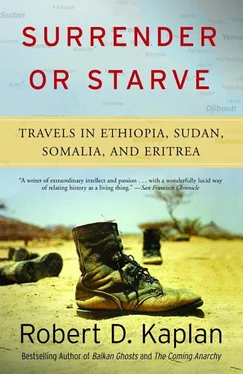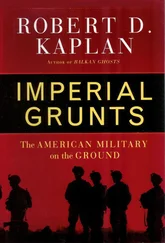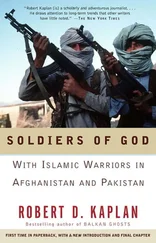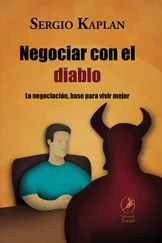Of course, “in the long run,” as Vance put it, the Soviets will be forced to leave Ethiopia. As everybody knows, nothing is forever. But to judge Vance and Young by their own standard of concern for Africa and its peoples, even if the Soviets were ejected tomorrow, it would be too late and therefore irrelevant. One million Ethiopians already have died as a result of famine and of forced collectivization, which would not have occurred had the Soviet Union not implanted itself in Ethiopia to the degree that the Carter State Department was willing to allow.
Vance’s belief that the Soviets would be ousted from Ethiopia the way they were from Egypt and Sudan was at no point a serious possibility simply because the Soviets weren’t involved in Egypt and Sudan to the extent that they were in Ethiopia. In Egypt, from the late 1950s through the early 1970s, the Soviets gave substantial military and economic aid to a sympathetic regime, but they never sought to create a communist satellite as they did in Ethiopia. Moscow’s involvement with Sudan in the first years of Nimeiri’s rule was less dramatic than in the case of Egypt. But not only was Vance guilty of a false comparison, but of a particularly U.S., and even more particularly liberal, tendency of ascribing the lessons learned from one’s own experience to that of another nation. The futility of seeking permanent domination over an African country was what the United States learned from the USSR’s misadventures in Egypt and Sudan, not what the Soviets learned. What they learned was quite the opposite. As the French political philosopher Jean-Francois Revel explained in How Democracies Perish, “The expulsion of Soviet advisers from Egypt by Gamal Abdel Nasser’s successors was a lesson to Moscow that no country can be held permanently unless it is given a Communist regime wholly shaped in the standard satellite mold. …In the Soviet view, the case simply proved that half measures can never guarantee anything.”
The fact that Moscow was attempting to create a presence in Ethiopia so soon after the failures in Egypt and Sudan should have been a warning signal to Vance, and to Young, too, that this time the Soviets could be expected to be even more heavy-handed in their involvement. Rather than seek to create another Egypt, they would seek to create another Mongolia or Vietnam (in the sense of a Soviet satellite)—which they did. But neither Young nor Vance ever appeared to be thinking along those lines.
A still-existent nineteenth-century empire, Soviet Russia, was grafting itself onto another still-existent nineteenth-century empire. Amhara-dominated Ethiopia, and old world notions of power were all that came into play. Yet the West was led by idealistic theoreticians who eschewed not only the use of force and punitive measures, but even the threat of using them. Young and Vance wanted an African solution for an African problem, which given the unpleasant realities of Africa meant a Soviet solution because the only Africans who mattered in Ethiopia were the kind who were more impressed by the Soviet concept of power and control than by the U.S. one.
The groundwork for appeasement already had been laid by the time Jimmy Carter took office on January 20, 1977. Unfortunately for the mass of Ethiopian peasants, the political cataclysms that were shaking their country had caught the United States in a mood of distraction and self-defeat unequaled since the country formally became a superpower at the close of World War II. The first phase of the Ethiopian revolution corresponded with the last phase of Watergate. Haile Selassie was forced out of the emperor’s palace only a month after Richard Nixon was forced out of the White House. The final months of the emperor’s life and the consolidation of the Dergue’s power in Addis Ababa and other cities occurred concomitantly with the fall of South Vietnam in early 1975. The following year, Tom J. Farer wrote in War Clouds on the Horn of Africa that “in the wake of Vietnam, the air is filled with tests of will looking for somewhere to settle. The Horn is not an especially hospitable setting for human habitation. But as a venue for confrontation by proxy, it now shows real promise.” There was a fear among the public that the United States might get entangled in another fruitless confrontation in the Third World. Hesitancy, coupled with a distinct lack of confidence, became the order of the day. Rather than fine tune its manner of involvement in distant corners of the globe, the United States chose not to get involved at all. For Americans, this was certainly convenient. For Ethiopians and others, it was not.
As Paul B. Henze, a Carter-era National Security Council staffer, wrote in The National Interest (Winter 1985–1986), “The biggest gain for the Russians was the withdrawal syndrome that set in among Americans. Technological advances had made U.S. communications facilities at Asmara redundant by 1971, and a decision was taken to phase down operations. Ethiopia was not officially informed. One school of thought in the State Department held that Ethiopia would no longer be of importance to the U.S. once the Eritrean sites were closed.” So when Mengistu and the Dergue came to power, the United States, under President Gerald Ford, began to distance itself from internal Ethiopian politics. William G. Hyland, a deputy assistant to President Ford for national security affairs, reported that
this American reluctance to be too closely associated with the new PMAC [Provisional Military Advisory Council—the Dergue] was founded in some part on the belief that it would not last; it was tearing itself apart, executing and purging its own followers, and periodically threatening to execute the royal family. In fact, much American political capital was expended in convincing the PMAC to save Haile Selassie and his family. But at the same time the United States showed little sympathy for the new regime’s fear of a Somali invasion, despite the continuing and growing Soviet military role in Somalia.
The United States already was beginning to forget the laws of nature. A regime that was executing and purging its own followers and threatening to execute the royal family was not a regime that was about to fall; rather, it most surely was going to survive against all comers, even if it had to execute half the population to do so. Didn’t the Bolsheviks do the same during their first years in power in the USSR? Wasn’t it apparent that given the kill-or-be-killed atmosphere in Addis Ababa, and the professed ideology of the combatants, that the individuals who were going to emerge on top at the end of all the bloodletting were going to make perfect bedfellows for the Soviets? The United States was dealing with professional murderers, and the only leverage it had over them—their well-grounded fear of an invasion from historically hostile Somalia—was not utilized.
The outgoing secretary of state, Henry Kissinger, tried to keep an iron in the fire by continuing military assistance to Ethiopia, even after the overthrow of Haile Selassie. Liberals, quite legitimately, questioned this approach. The Dergue had renewed the military conflict in Eritrea and from the very beginning had been treating its people with extreme barbarity. But Kissinger, at least, seemed to realize that if the United States completely forfeited its presence in Ethiopia, rather than hold its nose for the time being at the awful violations of human rights, the eventual result would be not only a strategic gain for the Soviets, but a more drawn out suffering for the people of the region.
Exit Ford and Kissinger. Enter Carter and Vance, with Young at the United Nations adopting a high public profile on African affairs. They wanted a policy that would demonstrate greater U.S. concern for black Africa, while being less heavy-handed at the same time. In the Horn, this immediately translated into asymmetry because the Soviets were starting to be more enterprising and aggressive than ever.
Читать дальше












